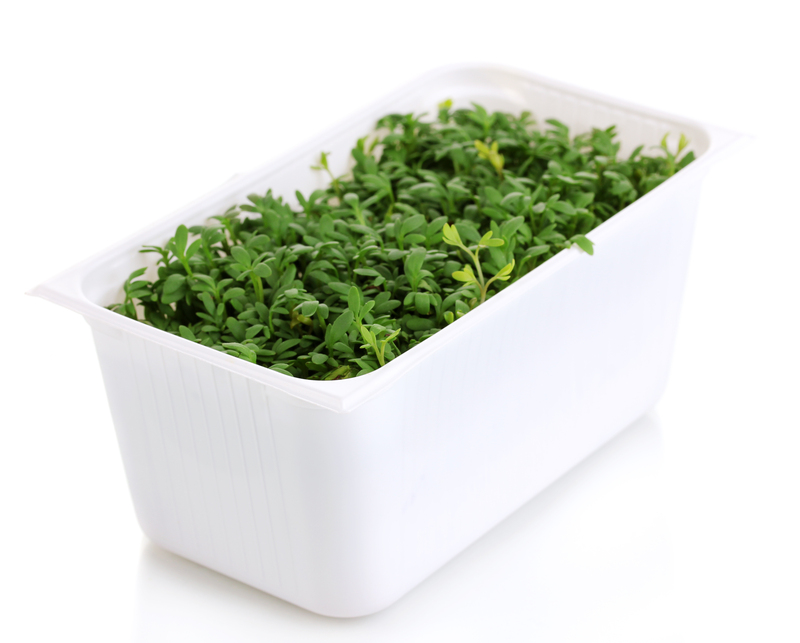Enhance Your Household Recycling With Expert Guidance
Looking to make a positive impact on the environment? Strengthening your household recycling routine is a powerful way to begin. This comprehensive guide delivers expert guidance, tips, and strategies to help you enhance your household recycling and make your efforts more effective, sustainable, and rewarding.
Why Focus on Household Recycling?
More than ever, households are the frontline of the global recycling movement. The items you dispose of every day accumulate quickly. With a little expert advice, you can ensure your recycling efforts truly make a difference.
- Minimize landfill waste and reduce pollution
- Save energy and precious raw materials
- Conserve natural resources for future generations
- Promote a circular economy by reintroducing materials into production cycles
By adopting best practices for residential recycling, you take tangible steps toward a cleaner, greener world. To enhance your household recycling with expert guidance, dive into the sections below.

Understanding the Basics: What Can You Recycle?
Before you improve your recycling habits, it's essential to understand which household items are recyclable and which are not. Following expert recommendations helps prevent contamination, a major issue in recycling streams.
Common Household Recyclables
- Papers (newspapers, office paper, magazines)
- Cardboard (shipping boxes, cereal boxes)
- Metals (aluminum cans, tin cans, foil)
- Plastics (check local code guidelines - #1 and #2 are widely accepted)
- Glass bottles and jars (check for color-sorting requirements)
Non-Recyclable Items to Avoid
- Food-soiled packaging (greasy pizza boxes, used paper towels)
- Plastic bags and wrap (unless your municipality accepts them)
- Styrofoam products
- Ceramics, drinking glasses, mirrors
- Batteries and electronics (require special disposal)
Expert Tip: When in doubt, check your local municipality's recycling guidelines or search for recycling directories online. Contamination can ruin an entire batch of recyclables, so when you're unsure, it's better to leave it out!
Expert Guidance to Enhance Your Home Recycling
Ready to elevate your household recycling game? The key is organization, education, and consistency. Follow these professional strategies to optimize your efforts:
Set Up an Efficient Recycling Station
- Choose convenient locations for bins--kitchens and garages are popular spots.
- Label each bin clearly for paper, plastics, metals, and glass.
- Include a reference sheet nearby with examples of acceptable and non-acceptable materials.
- Educate family members to ensure proper separation of waste.
An organized station will make recycling seamless and second nature for everyone in your household.
Rinse and Dry: The Golden Rule
Residue from food containers is a major contaminant. Always rinse cans, bottles, and jars before placing them in recycling bins. Let them dry beforehand to prevent mold or foul odors.
Reduce and Reuse--Not Just Recycle
Experts agree: waste reduction and reuse outrank recycling on the waste management hierarchy.
- Opt for reusable containers, bottles, and shopping bags
- Avoid single-use plastics and disposables whenever possible
- Purchase items with minimal or recyclable packaging
- Repurpose jars, boxes, and bags creatively in your home
By reducing what enters your waste stream, you automatically enhance your household recycling efficiency.
Advanced Household Recycling Tips from Experts
Once you have the basics down, these expert-recommended techniques can take your recycling to the next level:
Stay Informed About Local Policies
Municipal recycling programs vary widely. As technology and policies change, stay updated by visiting your city or county's official websites. Some communities, for instance, now accept certain plastics or specialty items previously banned.
Participate in Community or Curbside Initiatives
- Join local recycling events or drop-off days for items like electronics, batteries, and hazardous waste.
- Check for neighborhood composting programs, which can greatly reduce landfill-bound food scraps.
- Support school or nonprofit recycling drives for hard-to-recycle materials.
Composting: The Hidden Hero of Home Waste Reduction
Organic waste makes up 20-30% of residential trash. By composting, you divert food scraps, yard waste, and some paper products from landfills while creating nutrient-rich soil for your garden.
- Set up a backyard compost bin or use municipal green waste services if available.
- Compost kitchen scraps (avoid meat, dairy, and oily foods), coffee grounds, eggshells, and yard trim.
- Use finished compost for your landscaping or gardening needs.
How to Handle Hard-to-Recycle Items
Even with the best household recycling habits, some items require special attention or disposal. Here's what experts suggest:
- Batteries, Electronics, and Light Bulbs: Many big-box retailers and local authorities offer free recycling programs.
- Plastic Bags and Films: Collect them in a separate container and bring them to participating grocery stores.
- Textiles: Donate wearable items or seek out textile recycling bins in your area.
- Household Hazardous Waste: Paints, cleaning fluids, and chemicals require municipal collection site drop-offs.
Did You Know? Some communities have "reuse days" where residents can swap items like tools, books, or furniture. These events extend the life of goods and keep them out of landfills.
Common Myths and Mistakes in Household Recycling
Myth #1: "All Plastics Are Recyclable"
Fact: Only certain plastics (typically #1 PET and #2 HDPE) are accepted in most municipal programs. Check the number inside the recycling symbol on your item and confirm with local guidance.
Myth #2: "Recyclables Don't Need to Be Clean"
Fact: Dirty recyclables can contaminate entire batches, sending everything to the landfill. Always rinse and dry!
Myth #3: "Recycling Alone is Enough"
Fact: Reducing consumption and reusing materials are even more effective strategies. Recycling is just one piece of a comprehensive waste reduction plan.
Other Common Mistakes
- Bagging recyclables: Items should be loose in the bin--plastic bags tangle machinery.
- Placing food-soiled containers in recycling bins
- Putting in items "hoping" they are recyclable ("wish-cycling")
- Ignoring local guidelines and updates
How to Involve Your Family and Community
Experts agree that consistent recycling habits thrive when everyone participates. Here's how to encourage involvement:
- Assign recycling tasks to each family member.
- Host recycling challenges among friends or neighbors.
- Use educational games or incentives for children to form good habits.
- Participate in city-sponsored recycling education events.
When recycling becomes a shared goal, your efforts are more likely to succeed and make a real impact.
Choosing and Maintaining Recycling Equipment
Selecting the right bins and containers makes household recycling more effective and convenient.
- Sturdy, color-coded bins make sorting easier for all ages.
- Choose bins with lids to keep out pests and reduce odors.
- Opt for size-appropriate containers, depending on your household's recycling volume.
- Regularly clean and sanitize bins to maintain hygiene and prevent smells.
Proper equipment, maintained regularly, encourages continued engagement and success in your home recycling strategy.
Track Your Impact and Celebrate Success
Seeing the results of your efforts provides motivation and inspires others! Here are a few ways to measure and celebrate your enhanced household recycling:
- Track the quantity of recyclables you divert from landfill each week or month.
- Calculate your reduced carbon footprint using online calculators.
- Share milestones or achievements with friends, family, or your community online.
- Reward your household for reaching recycling goals--plan a green celebration!
Remember: Every bottle, can, or piece of paper you recycle adds up. Expert guidance ensures your actions are not just well-intentioned but impactful.

Resources for Enhanced Household Recycling
For more advanced tips and expert recommendations, refer to these well-established resources:
- Earth911 Recycling Directory - find local recyclers and learn about materials
- EPA's "Reduce, Reuse, Recycle" resource page
- Municipal websites - up-to-date local guidelines
- The Recycling Partnership - national best practices
- Local environmental organizations
Conclusion: Start Enhancing Your Household Recycling Today
With expert guidance, any household can master recycling--and your efforts matter, both locally and globally. By understanding what can be recycled, avoiding common mistakes, involving your family and community, and committing to continuous improvement, you enhance your household recycling system in ways that truly make a difference.
Embrace the journey to better recycling. Stay curious, adapt as new information becomes available, and don't forget to celebrate your successes along the way. The planet--and future generations--will thank you for your dedication and enhanced household recycling efforts!
Ready to enhance your household recycling routine? Start today with these expert-approved strategies and create a sustainable legacy for tomorrow.